MercoPress. South Atlantic News Agency
Tag: Spain
-
Thursday, June 7th 2018 - 08:15 UTC
“Feminist cabinet” in Spain, 11 of 17 women ministers including defense, economy and finance

Spain's Socialist Prime Minister Pedro Sánchez has given 11 of his 17 cabinet posts to women, a higher proportion than anywhere else in Europe. A self-styled feminist, Sánchez' choice was in marked contrast to the male-dominated executives of ex-PM Mariano Rajoy, ousted last week.
-
Friday, June 1st 2018 - 06:48 UTC
“Mr. Rajoy your time is up”, Socialist Sanchez calls for the resignation of the conservative leader

Spain’s Partido Popular government appeared doomed last night to lose a no-confidence vote in parliament, with the centre-left PSOE poised to take power. A Basque nationalist party’s decisive announcement that it would vote in favor of the motion spelled the almost certain end of Prime Minister Mariano Rajoy’s mandate and foretold the stunning collapse of his minority government in a parliamentary vote today Friday, when it will be short of support to survive.
-
Tuesday, May 29th 2018 - 08:18 UTC
Political storm in Spain: congress will subject PM Rajoy to a no confidence vote this week
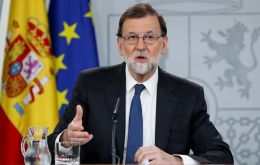
Spanish lawmakers have agreed to subject Prime Minister Mariano Rajoy to a vote of no confidence this week. It comes in the wake of graft convictions of businesspeople and officials tied to his conservative Popular Party (PP).
-
Saturday, May 26th 2018 - 08:46 UTC
Countdown for Rajoy's government: call for fresh elections

Spanish opposition parties have launched a fierce campaign to end the conservative government of Mariano Rajoy after courts ruled that his Partido Popular profited from a large kickbacks-for-contracts scheme. The Socialist opposition announced a vote of no confidence against the prime minister with the backing of anti-establishment and left-wing parties, while the pro-business Ciudadanos (Citizens) – which had supported the conservative minority government until now – urged Mr Rajoy to call a fresh election.
-
Friday, May 25th 2018 - 08:23 UTC
Blow to Rajoy: 29 members of the ruling party convicted for corruption

A Spanish court has issued hefty prison sentences for politicians and business people involved in a kickbacks-for-contracts scheme that helped fund Spain’s governing party. The National Court’s decision is a major blow for Spanish Prime Minister Mariano Rajoy’s Partido Popular, fined 245,000 Euros because it benefited from the illegal scheme that was in place between 1999 and 2005.
-
Wednesday, May 23rd 2018 - 08:33 UTC
Spanish left wing leader takes heavy flack for purchasing a 600.000 Euro mansion
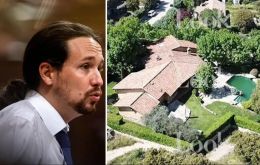
Accusations of hypocrisy have rained down on the couple that heads Spain's far-left Podemos party for buying a 600,000-Euro luxury home with a swimming pool after previously condemning such extravagance. The purchase caused unease among the rank and file of Podemos, which was formed in 2014 to represent “the people” against “the caste” -- as it called the country's political and business elites -- and there are fears it could cost the party at the ballot box.
-
Monday, May 21st 2018 - 08:26 UTC
UK and Spain discuss Brexit and Gibraltar in Madrid: “constructive meeting”
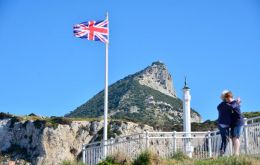
Gibraltar was discussed in Madrid on Saturday during a wide-ranging meeting on Brexit between the UK’s Minister for the Cabinet Office, David Lidington, and Spanish Minister for Foreign Affairs, Alfonso Dastis. Speaking after the meeting, Mr Lidington expressed confidence that a constructive agreement would be reached on Gibraltar’s post-Brexit relations with Spain and the wider EU.
-
Thursday, May 17th 2018 - 08:53 UTC
Brazil reacts strongly to EU ex-leaders asking for Lula to run for office
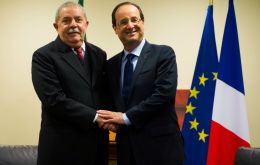
Brazil on Wednesday lashed out at a demand by former European leaders for disgraced ex-president Lula da Silva to be allowed to take part in elections this year. A group of former EU left leaning leaders, including French ex-president Francois Holland and Spanish former prime minister Jose Luis Rodriguez Zapatero, called Lula's imprisonment for corruption “hurried” and said he should be “free to present himself before Brazilian voters.”
-
Wednesday, May 16th 2018 - 08:30 UTC
Catalan MPs elect fervent separatist who pledges to reinstate Puigdemont as “the legitimate president”
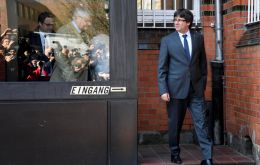
Catalan MPs have elected a fervent separatist as the new chief of the region, ending a leadership vacuum of more than six months and setting the scene for more confrontations with the Spanish government. Quim Torra, 55, a former corporate lawyer who went on to lead a prominent pro-secession group, vowed to build an independent Catalan republic by working under the leadership of his fugitive predecessor, Carles Puigdemont.
-
Tuesday, May 8th 2018 - 08:08 UTC
Overseas accounts of 35.000 Argentines caught in the taxman's web

Argentina's Internal Revenue Service, AFIP, announced it had received information on 35.000 overseas bank accounts held by Argentines, which should make it easier to control payment deadlines of the respective sworn statements on taxes, profits and assets.
